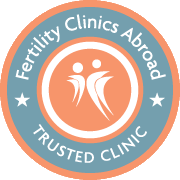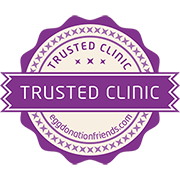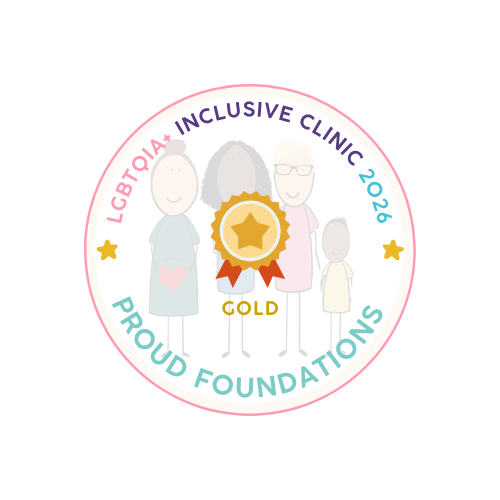Before Treatment
1. I don’t think my fertility treatment can wait! What are my chances of conceiving once all of this is over?
If you have such concerns, please contact us and we can arrange a video call/phone call to discuss your case and options
2. If I am a new patient how soon can I start treatment?
If you are a new patient the first thing you need to do is get in contact with our International Team at [email protected], so that we can obtain your medical information and then we can schedule a free one hour medical consultation with our medical director Dr Dovas and our International Patient Manager Chrysa Karakosta. They will review and discuss the details of your case and guide you appropriately.
3. Is it safe to have ART treatment at this time?
As the coronavirus (SARS-CoV-2) is a new virus, we can only base our recommendations on what is currently available. The European Society of Human Reproduction and Embryology has issued new guidelines on 23.04.2020 (https://www.eshre.eu/Press-Room/ESHRE-News), as to how IVF units can start working again for any clinical indication, in line with local regulations, as the risk of SARS-CoV-2/COVID-19 infection is decreasing. This statement also recommends what measures should be taken so that ART treatments can be safely processed both from the patient’s prospective and the staff.
However, it is important to note that each case that is due to commence treatment needs to be evaluated as:
- viral infections in pregnant women can be more difficult and especially if they have other underlying health issues
- some of the medications used in virus-infected patients may not be recommended during pregnancy
- the consequences of COVID-19 in pregnant women are not fully known
4. What effect will this delay of my treatment have on my ovarian reserve?
There are no studies indicating that the virus has any impact on your fertility. However, women that have a low ovarian reserve and are worried about the delay that travelling abroad may have to their treatment should contact us, so we can discuss their worries and concerns.
5. I have been diagnosed with cancer and chemotherapy is recommended. Can I still attempt to freeze my eggs (or sperm if male). How will this wait affect my future fertility?
According to the American Society for Reproductive Medicine (ASRM) and the European Society of Human Reproduction and Embryology (ESHRE) - the two largest societies in the world whose members comprise the major experts and professionals working in the field of reproductive medicine and embryology: Fertility preservation for cancer patients (eggs, sperm or embryos) is considered an urgent procedure, as these patients will need to undergo treatments that may affect their fertility and as these treatments cannot be postponed. There is no scientific data suggesting that freezing gametes during this period of time, will affect your future fertility in any way, as long as the safety measures and procedures are kept by the IVF unit.
6. For how long can embryo transfer be postponed?
In Greece, as the COVID-19 pandemic is starting to stabilize and there is a gradual lifting of the restrictive measures, IVF units are able again to resume treatments. Newlife IVF Greece will be following all strict but necessary measures for safe practice to minimise risks related to the SARS-CoV-2 virus both to staff and patients, according to the latest guidelines issued by ESHRE and ASRM and our National Regulatory Body.
International patients will be informed as soon as international travel is permitted, without imposed quarantines upon arrival and when we can confirm that your travel to Greece will be safe from all aspects.
7. I had to postpone my treatment. What now?
As we need to wait until it is safe and allowed for you to travel over for your treatment, we recommend that you take advantage of your time during lockdown to prepare for you upcoming treatment cycle by following a healthy lifestyle &catching up with some well needed sleep. The International team is constantly online to reply to your questions and worries. If you feel that you it would benefit you to arrange a phone call with our medical and scientific team, please contact us.
During Treatment
8. What preventive measures can I take during my fertility treatment?
It is essential to follow the World Health Organisation and local health authorities’ recommendations. These usually are:
- Good hand hygiene with frequent hand washing.
- Avoid hand contact with eyes, mouth, nose.
- If you have any worrying symptoms, avoid close contact with other people and contact the health authorities as soon as possible.
When you are due to commence treatment, a code of practice will be shared with you so you are aware of the measures that we all need to follow so you, all other patients and staff remain safe during your treatment. regarding your visits to the IVF unit will be given to you by the International Department.
9. Can I go to my screening appointments if I am in quarantine?
If you are in quarantine, as you are a suspected COVID-19 case, you should cancel your appointments, as treatment will need to be postponed.
If you are in quarantine due to your country’s restrictions, we will need to discuss if these appointments can and if they should be postponed.
10. Does fertility treatment medication make me more vulnerable to coronavirus?
Fertility medications that are routinely used do not make women more vulnerable to coronavirus. However, if you are on any type of immunosuppressant medications you will need to consult with your fertility practitioner regarding the risks of using these during the pandemic.
After treatment/During pregnancy
11. Does the COVID-19 virus affect pregnant women more than others?
The most recent data available do no indicate that pregnant women have a higher chance of contracting the virus or that they carry a higher risk of serious illness, compared to other healthy individuals. In general, viral infections in some pregnant women may be worse and hence why as we have limited information about the coronavirus infections, pregnant women are categorized under the ‘vulnerable group’. They should reduce social contact and also follow strictly all the safety measures and guidelines issued by the WHO. Furthermore, they should inform their doctor immediately if they suspect that they are having symptoms related to COVID-19 (Cough, shortness of breath, headache, fever and no sense of smell).
12. If I get infected with COVID-19, will it affect my baby?
Evidence so far indicate indicates:
- no increase in the risk of miscarriage,
- that it is highly unlikely that if you are positive for COVID that this would cause any issues to your baby’s normal development
- vertical transmission from mother to baby is probable, according to data collected from the RCOG in the UK, but babies so far have not had any complications.
- that it is unclear if the coronavirus leads to premature births, or low birth weight babies, as there have been few such births and hence it is difficult to clarify if the delivery was induced early to benefit the recovery of the mother.
However, we have limited information, on women in the first trimester and therefore cannot exclude something at this present time.
13. I’m pregnant. How can I protect myself against COVID-19?
Pregnant women should take the same precautions to avoid COVID-19 infection as other people.
- You can help protect yourself by:
- Washing your hands frequently with an alcohol-based hand rub or soap and water.
- Distancing yourselves from others and others and avoiding crowded spaces.
- Avoiding touching your eyes, nose and mouth.
- Avoiding using public transport
- Working from home
- Wear a facial mask when it is necessary for you to be in crowded places.
- Practicing respiratory hygiene. This means covering your mouth and nose with your bent elbow or using a tissue when you cough or sneeze that is then discarded and your hands are thoroughly washed.
If you have fever, cough or difficulty breathing, seek medical care early and follow the directions of your local health authority.
14. Should pregnant women be tested for COVID-19?
Who should get tested and when varies greatly depending on where you live. The WHO recommends that pregnant women with symptoms of COVID-19 should be prioritized for testing. If they have COVID-19, they may need specialized care.
15. Do pregnant women with suspected or confirmed COVID-19 need to give birth by caesarean section?
No. The WHO advice is that caesarean sections should only be performed when medically justified. The mode of delivery should be based on obstetric recommendations and on a woman’s preferences.
16. Can women with COVID-19 breastfeed?
Yes. Women that have contracted COVID-19 can breastfeed if they wish to do so. They should however take special measures, as will be instructed by their midwife.
17. Can I touch and hold my newborn baby if I have COVID-19?
Yes. It is well known that close contact and breastfeeding helps all newborns thrive.
18. I have COVID-19 and am too unwell to breastfeed my baby directly. What can I do?
If due to COVID-19 you are not feel well enough to breastfeed your baby, you should be supported to safely provide your baby with breastmilk by trying expressing milk.
19. Is it Safe to Deliver My Baby in a Hospital Now?
Yes. All Hospitals are taking special measures and precautions to secure mothers and newborn babies. Patients with COVID-19 are kept in isolated wards, in all medical facilities.
General
20. How long will these restrictions be in place for? When will the clinic reopen?
Newlife IVF Greece will be commencing treatment cycles in May, in accordance to the new guidelines issued by the European Society of Human reproduction and Embryology and our National guidelines. Initially treatments will be feasible for residents of Greece, as the lockdown restrictions have started to be lifted as of 4.5.2020. International patients will be able to commence treatment once travel restrictions from each country are lifted and we make sure it will be safe for them to travel to Greece.
21. I was tested positive for the coronavirus, what should I do?
You should contact your local our clinic immediately so that we can take all the necessary measurements regarding your treatment and also make sure we protect other patients or members of staff that may have been in contact with you.
22. Will having COVID-19 affect my future fertility?
The recent data does not show that the coronavirus has any effect on fertility. The only concern has been the length of time that IVF units would need to remain closed during the pandemic. However, all major scientific and medical societies and many National regulatory bodies have approved that treatment cycles may commence offering treatments again.
23. What will happen with my frozen eggs, sperm or embryos?
Cryopreserved eggs, sperm or embryos are not affected in any way. These remain in storage in liquid nitrogen at -196 degrees Celsius until travel restrictions are lifted and you wish to commence your treatment.
24. What should I do if I do start feeling sick or show symptoms of COVID-19?
You should inform your healthcare provider (GP or local hospital) immediately and also inform Newlife IVF Greece, so we can note in your file and see when it will then be feasible for you to seek treatment, according to the latest scientific data regarding COVID-19.
25. Can COVID-19 cause miscarriages?
No studies, so far, indicate an increased risk of miscarriage if infected with COVID-19. It is important to note that we still have limited data as this is a new virus.
26. Why has ESHRE made a statement to stop all fertility treatments?
The following statements were made by ESHRE:
- March 14, 2020- “all fertility patients considering or planning treatment, even if they do not meet the diagnostic criteria for COVID-19 infection, should avoid becoming pregnant at this time”. This was the initial recommendation as this is a new virus and the data we have was very limited.
- April 17, 2020- “assisted reproduction treatments should only commence in cases of urgent fertility preservation in oncology patients”.
- April 24, 2020- “Guidance on recommencing ART treatments”
27. Why doesn't ESHRE issue similar recommendation for spontaneous pregnancies?
In order for a fertility treatment to lead to a pregnancy, a woman needs to undertake a specific medicinal regime and requires multiple visits to the IVF unit. During these visits contact with multiple staff members (doctors, nurses, sonographers, doctors) is required and hence the risks of contracting the corona virus is higher. Furthermore, an IVF pregnancy can be suspended or deferred, even after medications have started, while in a non-IVF pregnancy things cannot be altered.
28. Will freezing embryos reduce the chances of pregnancy?
Freezing embryos is something that is performed and recommended in many IVF treatment cycles. The statistics that we have do not show lower success rates when these frozen embryos are replaced in a properly prepared endometrial lining. In some cases, frozen embryo transfers may even have higher pregnancy rates.
29. Why is fertility preservation for oncology patients still allowed?
Fertility preservation for cancer patients is considered an urgent procedure, as these patients have to undergo treatments which can usually not be postponed.
30. Where Can I Get Updated Information on Coronavirus (COVID-19)?
The most accurate information regarding the Coronavirus can be found on the below sites:
- Centers for Disease Control (CDC): https://www.cdc.gov/coronavirus/2019-ncov/index.html
- World Health Organization (WHO) websites for up-to-date, reliable information about coronavirus: https://www.who.int/emergencies/diseases/novel-coronavirus-2019/events-as-they-happen
- European Society of Human Reproduction and Embryology: https://www.eshre.eu/Home/COVID19WG
- American Society of reproductive Medicine: https://www.asrm.org/news-and-publications/covid-19/
- RCOG: https://www.rcog.org.uk/coronavirus-pregnancy
Regarding more specific news concerning a possible treatment cycle at Newlife IVF Greece, please contact the International department at [email protected].

Chrysa Karakosta, BSc, MSc
Chrysa is the International Department Director at Newlife IVF Greece, in Thessaloniki Greece.











